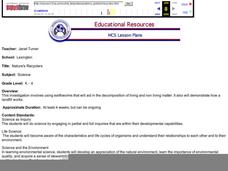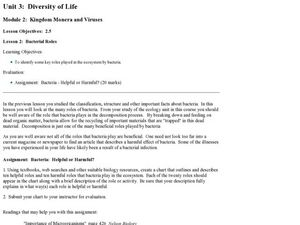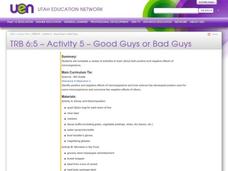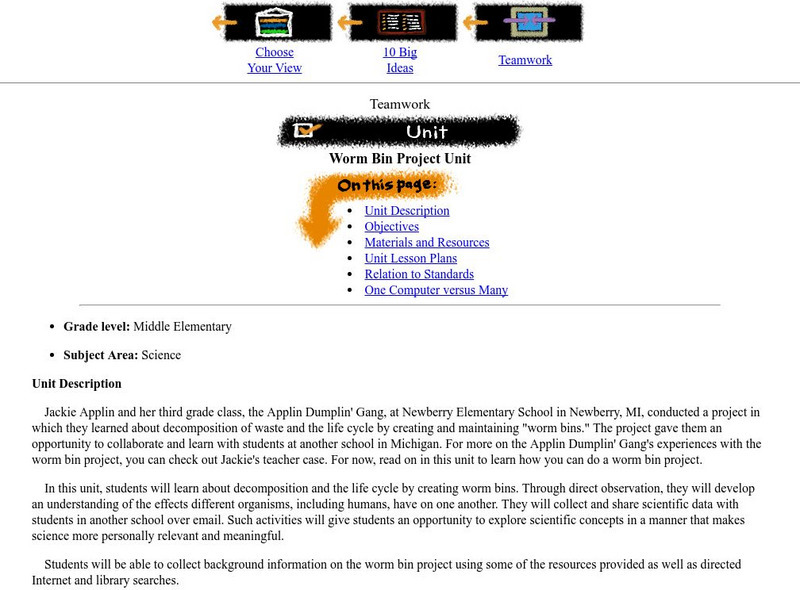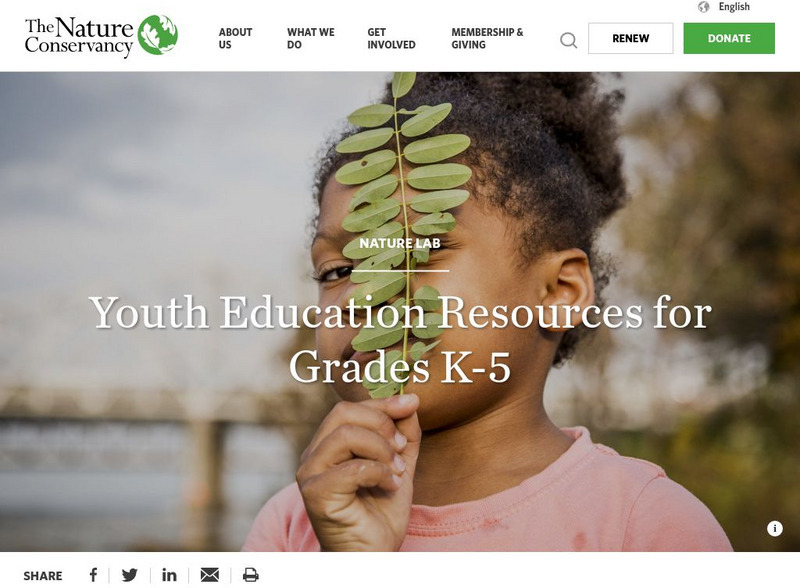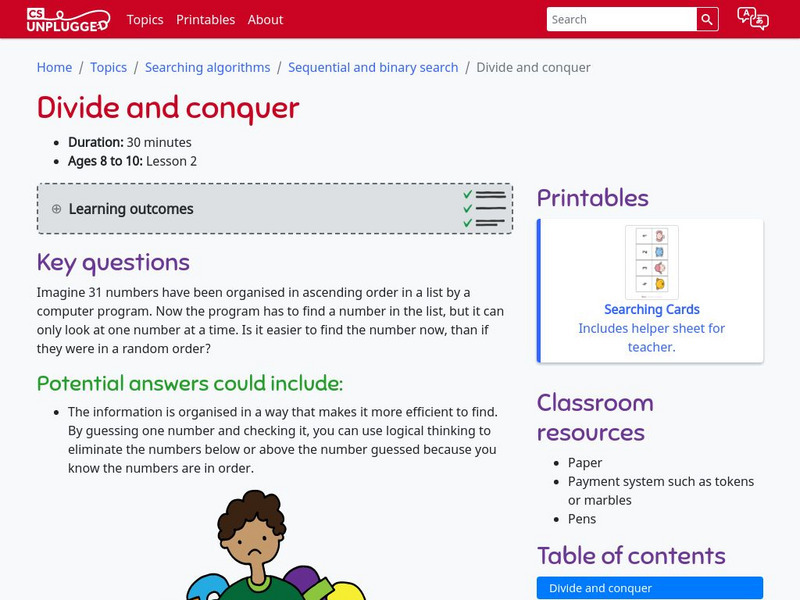Curated OER
Nature's Recyclers
Students create environments to demonstrate how earthworms interact with their surroundings.
Curated OER
Chemistry In Plant Nutrition And Growth
Young scholars investigate different factors that affect plant growth. They research the effects of water supply, radiant energy, air temperature, and soil temperature. Students also gather facts that influence plant nutrition that...
Curated OER
Water Purification
Young scholars develop an understanding and appreciation of water purification techniques and their implications for health maintenance.
Curated OER
The Compost Bucket
Students recognize that plants and soils have a close relationship. They view a photo essay on the common practice and natural process of composting. Afterwards, they observe the process of plant decay over the course of several days.
Curated OER
Bacterial Roles
Students study bacteria and the role it plays in the ecosystem. In this bacteria lesson students research the roles bacteria has and submit a chart.
Curated OER
The Principles Of Composting
Students put items in a plastic bag and watch the effects of composting. While completing the experiment, students answer questions and ask permission to start their own compost pile at home.
Curated OER
Household Pests
Sixth graders discover the various habitat requirements for assorted household pests from ants to wasps. They conduct various activities including researching the life cycles moths, cockroaches, and mosquitoes
Curated OER
Good Guys or Bad Guys
Sixth graders complete a variety of activities to explore both positive and negative effects of microorganisms. They, in groups, engage in a series of experiments which illustrate the effects of certain molds.
Curated OER
Termite Biology
Pupils explore the physical characteristics, distribution and habitat of termites. The lesson focuses on the termite as a social creature contrary to most other insects.
Curated OER
Compost Columns
In this unit of lessons, students examine the role of compost columns and recycling. They create a KWL chart about garbage in Chicago. They also examine life cycles and packaging of everyday products.
Curated OER
Can Fun Gus Help Plants/Trees Grow?
Students participate in an experiment in which they test the growth of different types of plants. They discover how growth rates vary using inoculum. They draw pictures and are read books about plants to end the lesson.
Curated OER
Code Makers - Electron Configuration, Aufbau Principle
Learners write the electron configuration of elements using the Aufbau principle. In this chemistry lesson, students build their own key that demonstrates the principle.
Michigan State University
Michigan State University: Lets Net: Worm Bin Project Unit
Students learn about the worm life cycle and decomposition of life by creating small-scale worm ecosystems. Research groups share scientific data with groups at other schools using web-based communication tools.
Nature Conservancy
The Nature Conservancy: Gardens Activity Guide: Soil
In this lesson learners conduct a soil analysis to understand soil types and explore the relationship between the garden and healthy, fertile soil. Soil is a natural resource that is crucial to life on Earth and when managed properly, it...
University of Canterbury
Cs Unplugged: Divide and Conquer
Imagine 31 numbers have been organized in ascending order in a list by a computer program. Now the program has to find a number in the list, but it can only look at one number at a time. Is it easier to find the number now, than if they...
